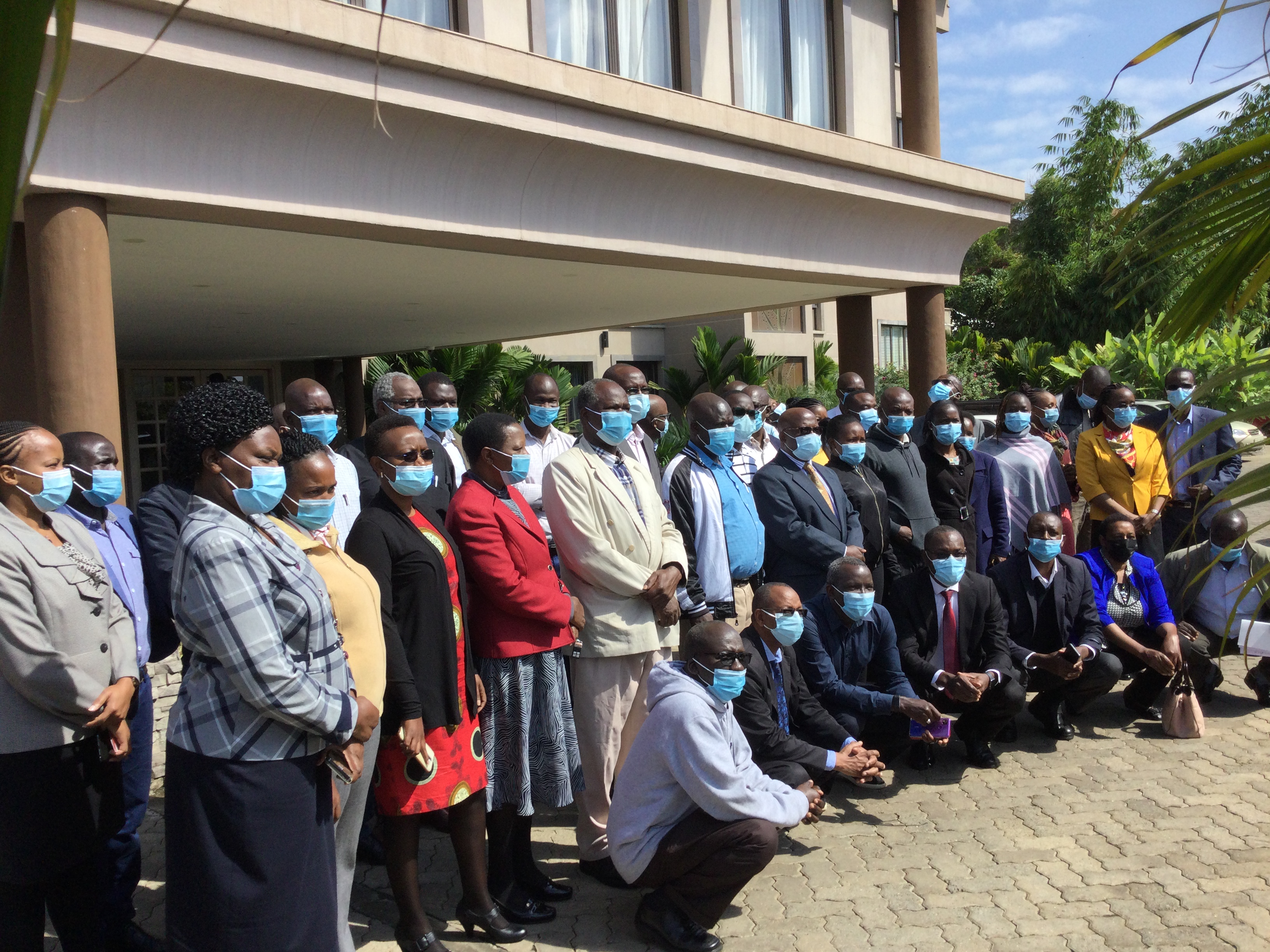An extraordinary meeting of the African Union (AU) Specialized Technical Committee (STC) on Agriculture, Rural Development, Water and Environment (ARDWE), comprising ministers in charge of the relevant offices in the Member States was held on Thursday, July 15, 2021, to deliberate and validate a draft common position of Africa for the forthcoming United Nations Food System Summit (UNFSS) scheduled for September 2021. Refer to attached press release.
View Full Post and Comments
The World Organization for Animal Health (OIE) funded through the AMR-Multi Partner Trust Fund (MPTF) held a write shop on March 2021 in Nakuru, Kenya to develop national farm biosecurity guidelines and interventions for high-risk food chains (poultry, pigs and dairy cattle) where high AMR has been reported in Kenya. Reference to existing regulations, international standards and best practice were made to identify potential pathways for the introduction and spread of animal disease in a farm or areas where poultry, pigs and dairy cattle are reared; and described mitigation measures packaged as guidelines for these production systems.
A second validation workshop was held between 12-16 July 2021 to review and finalize the guidelines and validate farm biosecurity guidelines for Dairy, Poultry, and Pig value chains to enhance preventive approaches to containing AMR. During the 3-day workshop stakeholders completed drafting the biosecurity guidelines and validated the developed guidance documents for use in training, extension and national dissemination to relevant stakeholders including professionals and farmers.

Participants for the validation workshop were drawn from the Directorate of Veterinary Services (DVS), Directorate of livestock production (DLP), veterinarians working in the counties, Kenya Dairy Board (KDB), as well as veterinary paraprofessionals and other animal health field experts working in the identified poultry, pig, and dairy cattle value chains and as well as representatives from FAO.
The adoption of biosecurity measures is expected to sustainably contribute to improved animal husbandry as well as minimize AMR risks attributed to foods of animal origin that could be contaminated by resistant pathogens. Moreover, subsequent use of the validated biosecurity guidelines for training and during extension services by animal health service providers is expected to provide tools to support farmers in improving their production practices. This in turn is anticipated to improve the livelihoods and increase resilience of the livestock farmers.
View Full Post and Comments
Are you a small scale farmer involved in rearing local poultry? How best can you improve the production and productivity in the in the local poultry industry? Access our manual on effective utilization of technologies and innovations for the promotion of local poultry livestock value chains in Africa.
Read more: http://repository.au-ibar.org/handle/123456789/609
View Full Post and Comments

AU-IBAR is pleased to announce Dr. Nick Nwankpa as Acting Director, effective May 2021.
Continue Reading



